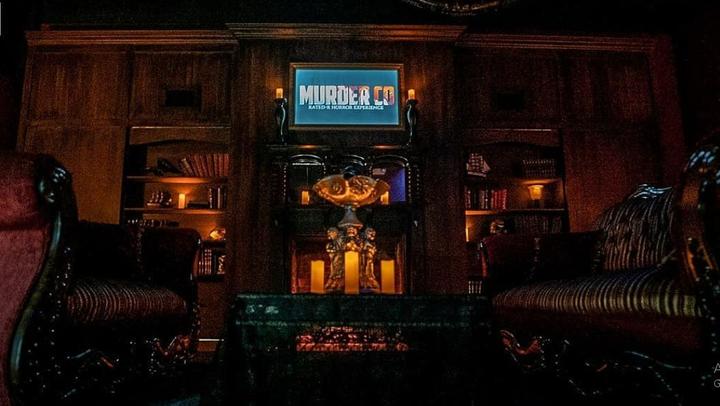Escape Room in Minneapolis-- A Perfect Activity for Any Kind Of Event
Escape Room in Minneapolis-- A Perfect Activity for Any Kind Of Event
Blog Article
Team Methods: Exactly How to Collaborate Effectively in a Getaway Area
Browsing the intricacies of an escape area necessitates more than mere interest; it requires a well-coordinated strategy grounded in clear interaction, strategic duty tasks, and proficient time management. Groups have to proactively pay attention per participant's insights, designate roles that straighten with individual staminas, and preserve routine check-ins to guarantee focus and protect against redundancy. By promoting an atmosphere that values cohesion and adaptability, groups can substantially increase their performance and success rates. The subtleties of these strategies can change the experience, however exactly how precisely can they be applied to take full advantage of the potential for success?
Establish Clear Interaction

To facilitate clear communication, it is essential to assign a main factor of call for info dissemination. Brief, concentrated updates from each team participant can maintain the group educated without overwhelming them with info.

Appoint Duties Purposefully
While clear communication establishes the structure for reliable teamwork, designating functions purposefully makes sure that each employee's toughness are used efficiently. In a getaway space situation, the time-sensitive and intricate nature of obstacles requires a well-organized technique to task delegation. By recognizing and leveraging specific competencies, groups can enhance their analytic capacities and improve general performance.
First, assess the one-of-a-kind skills and features of each individual. A person with a keen eye for information could stand out in locating concealed things, while a logical thinker can be much better matched to fixing problems. It's similarly essential to have a leader that can supervise progression, take care of the timeline, and make decisive calls when necessary. This role commonly calls for solid business and interpersonal skills.
2nd, ensure that duties are adaptable and adaptable. As new obstacles arise, the team should be able to pivot, reapportioning tasks as called for. This adaptability aids preserve energy and stops bottlenecks that could occur because of rigid function projects.
Eventually, a tactical approach to role project not just makes best use of the toughness of each staff member however additionally fosters a natural atmosphere, driving the team in the direction of an effective retreat.
Make Use Of Diverse Skills
Recognizing and taking advantage of the varied skills within your group can substantially elevate your performance in review a getaway space. Each employee brings unique staminas to the table, and properly leveraging these capabilities can quicken analytical and improve total effectiveness. A group member with strong analytical skills could succeed at deciphering complicated codes or patterns, while another with keen observational abilities may swiftly spot hidden hints that others could overlook.
Effective interaction is vital to utilizing these diverse abilities. Motivate employee to articulate their insights and concepts immediately, guaranteeing that all prospective options are thought about. This comprehensive approach fosters a dynamic setting where creative thinking and crucial reasoning can flourish. Furthermore, designating tasks that align with each participant's toughness can protect against traffic jams and make sure that progress is continual.
Additionally, diversity in skills typically translates to diversity in thinking styles, which is vital in an escape room setup. While some obstacles might require sensible reasoning and accuracy, others might take advantage of creative and association of ideas. By recognizing and leveraging this diversity, groups can attend to a wider variety of difficulties much more effectively, therefore enhancing their chances of a successful escape.
Manage Time Successfully

Identify visible challenges and split jobs based on group members' toughness, guaranteeing that nobody is still. This technique can aid keep the team concentrated and protect against time from slipping away unnoticed.
In addition, prevent one-track mind. If a challenge is taking too long, revolve employee or proceed to another obstacle, returning later on with fresh viewpoints. Communication is paramount-- maintain every person updated on fixed challenges and continuing to be tasks to avoid redundant efforts.
Lastly, browse around this site make use of any hints or hints sparingly but strategically - best escape room. Understanding when to request for assistance can conserve beneficial time. By adhering to these time monitoring principles, teams can significantly improve their opportunities of a successful and satisfying getaway area experience
Debrief and Show
Representation is an important aspect of group advancement and improvement in the context of escape rooms. When the challenge is completed, whether successfully or not, it is critical for the team to participate in a structured debriefing session. This process allows group members to evaluate their performance, recognize toughness, and pinpoint areas for improvement.
Begin the debrief by reviewing what worked out. Highlight particular circumstances of reliable interaction, problem-solving, and collaboration. Recognizing these favorable actions enhances them and motivates their repeating in future challenges.
Next, resolve the barriers encountered. Review moments of confusion, miscommunication, or ineffective techniques. Urge an open and positive dialogue where staff member can share their viewpoints without anxiety of objection. This promotes a culture of continual improvement and discovering.
Verdict
To conclude, successful cooperation in an escape space is asserted upon clear communication, critical role assignments, the effective application of varied skills, and skilled time administration. Routine check-ins and organized debriefings are essential for maintaining focus and cultivating continuous renovation. By creating a cohesive and adaptive team setting, the possibility of successfully addressing challenges and achieving the objective of leaving the area is significantly boosted. This approach not only ensures success however also promotes collective growth her response and discovering.
Report this page